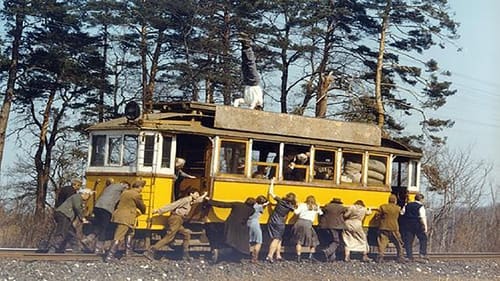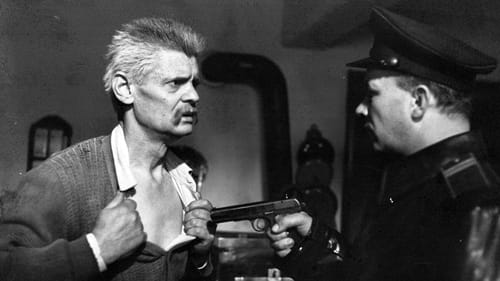Ági Mészáros
出生 : 1918-05-23, Budapest, Austria-Hungary [now Hungary]
死亡 : 1989-03-08

This sour and melancholic film recalls a few days of a forty-year-old woman in a crisis. Teréz is always disciplined but feels depressed and aimless after her divorce.

Gréti néni
"Budapest Tales" is about a group of people (consisting of Szabo regular Andras Balint along with Ildiko Bansagi and Karoly Kovacs) who find a broken down tram while trying to go to the city. The people band together and try to get the tram back on the train tracks and head towards the city. Along this journey the passengers encounter many people who join them on the tram. What started out as only a handful of people has now turned into a small village. As the people travel on to the city each person takes on certain roles and through the course of time these roles will change. Some people fall in love, others out of love, and a few even die. But life goes on. The people keep the tram going hoping to reach Budapest.

Margit néni
Edit, who became the wife of a politician out of a simple peasant girl, suddenly becomes a widow as a result of an accident. She never loved her husband. She lives a wealthy and lonely life amidst false friends, facing one of the last alternatives of her life, i.e. having to face her past in the hope of an independent new beginning.

Szemérmetes Erzsók
13 March 1965 (Hungary)

Terus
A crusading newspaper reporter covers the Soviet invasion of Hungary in 1956. Initially critical of the communists, the feature later espouses the virtues of the social changes implemented since the invasion. The title refers to the period of time the reporter spent interviewing witnesses to the invasion.

Slenkay felesége
Nelli, the icy, introverted farm girl, needs to find a husband following her father's death. She accepts the attentions of the noisy Takaró Sanyi, although she is more attracted to his silent and modest younger brother.

Mihály Zágon has been struggling with his conservative mother-in-law for a long time. Now, that his wife is pregnant, the old woman wants Piroska to stay in bed. Mihály is elected to be the president of the co-operative, but nobody is happy about this back home. His wife often pretends to be ill to keep him by her side.

Bodáné
1920 in a mining town in the country-side. The team of children led by Ferkó Boda fish guns and a flag of Red soldiers out of the local lake.

Erzsi, Bódog's wife

Angyalka
György Dandin, the rich bourgeois concludes a marriage contract with the noblemen Lükeházy couple who has turned poor: he can marry their daughter in return of a regular financial contribution. Angyalka escapes the undesired husband at their very first night, and furthermore she establishes a secret romantic relationship with Count Klitander who suits her a lot better.

Éva, Simon's wife
Venice Film Festival 1954

Garas Juli
Kiskrajcár is a 1953 Hungarian film directed by Márton Keleti. It was entered into the 1954 Cannes Film Festival.

Katalin Kis
Kis Katalin and Varga Jóska are getting married. During their honeymoon they are preparing plans for the future. Katalin, however, seems to lag behind both in her studies and the work competition, becoming a couch potato version of a wife. Jóska, instead of trying to help, does nothing else than his work.

Jóska has become a Communist in the Csillag prison in Szeged. In the meantime, Gábor successfully talks people in Jóska's native village out of joining the German-led Hungarian army.

The main character in the story that takes place in 1896, year of the millennium, is Szakhmáry Zoltán, who, in sharp contrast with the people around him, is neither a cynic nor a lewd, not even someone with a tendency for showing off his strength. Instead, he strives to become a humane person with enough common sense and modern thinking.

Marcsa
Baracs Pista, engineer at the construction site of a railway line near the Korláthy estate, falls in love with Rolla, a countess disguised as a peasant girl. The count is giving a party as he wants the railway line to go across his lands.

Marika Juhos
In 1905 Hungary, a young village woman has just undergone a marriage to the spoiled son of a man to whom her father is indebted, in order that the debt be cancelled, only to be spirited away by her true love, a young peasant, by whom she soon becomes pregnant. Together they attempt to find a way to buy up her father's debt and also pay for a divorce from her husband, against various odds.













